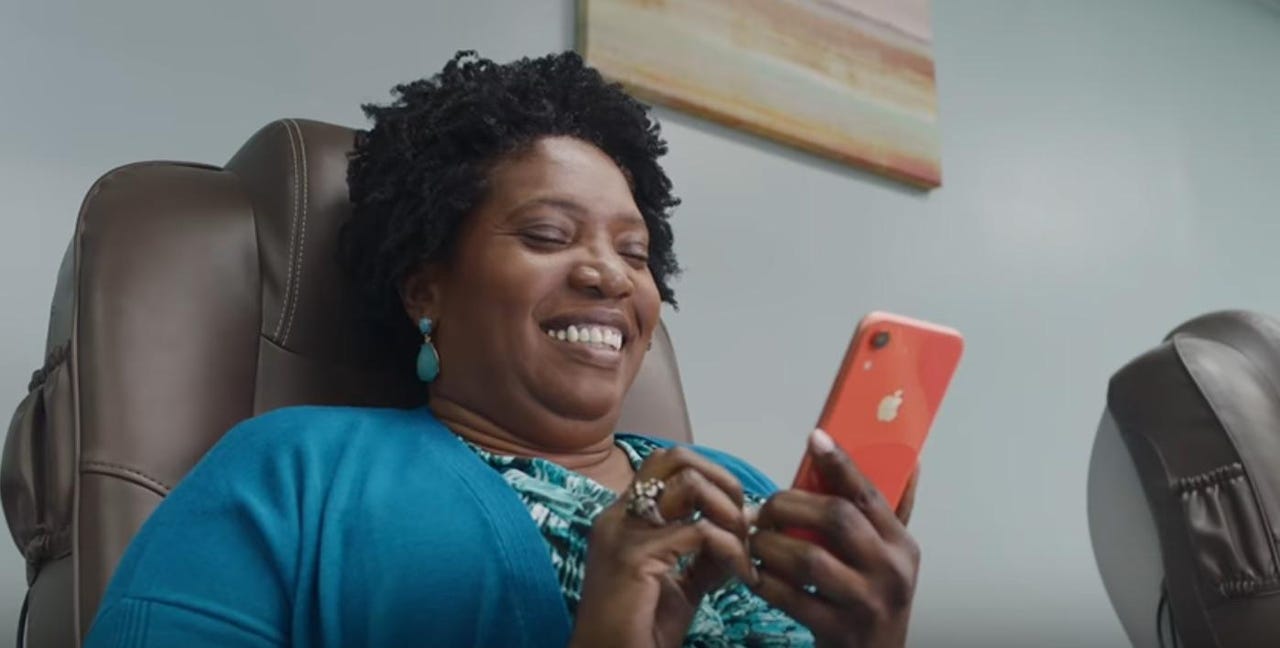Apple wants you to laugh out loud and annoy other people

The joy of privacy.
CNE
Google loudly proclaimed its new privacy features last week.
Apple, though, has been even more vociferous in insisting that it is the sole defender of your privacy, while the likes of, well, Google, regularly flout it.
To that end, Cupertino just released its latest attempt to get you to buy its phones for their private qualities.
We see a woman staring at her iPhone XR.
It seems to be making her happy. Very happy, even.
Then, momentarily, it seems to be disgusting her.
Not for long. She's soon giggling at whatever her friend, spouse, child, or church minister is sending her.
Is she in the privacy of her own home? Ah, no.
As we pull back, we see she's at the salon, enjoying a pedicure.
She's not enjoying the pedicure half as much as she's enjoying whatever it is she's seeing on her iPhone.
Everyone at the salon knows it. Because this woman has a loud and hearty laugh.
Everyone at the salon wants to know what she's looking at. That's everyone who wouldn't rather she just stop laughing for a moment.
The message of this homage to FOMO is, of course, that iMessage encrypts your conversations.
This keeps them out of the hands of, say, the FBI.
For Apple, this is a strong and simple way of raising the very subject of privacy to customers who mostly say they care about it and then do nothing about it.
With ads like these, Apple wants its brand to be indelibly associated with privacy. Its hope is that privacy will become a psychological element in the purchasing decision, just as glorious design once was.
I wonder, though, whether humans will ever see sense in these things.
We're so in love with ease and convenience that we never consider the potential consequences.
That's one thing we have in common with tech companies, of course.
